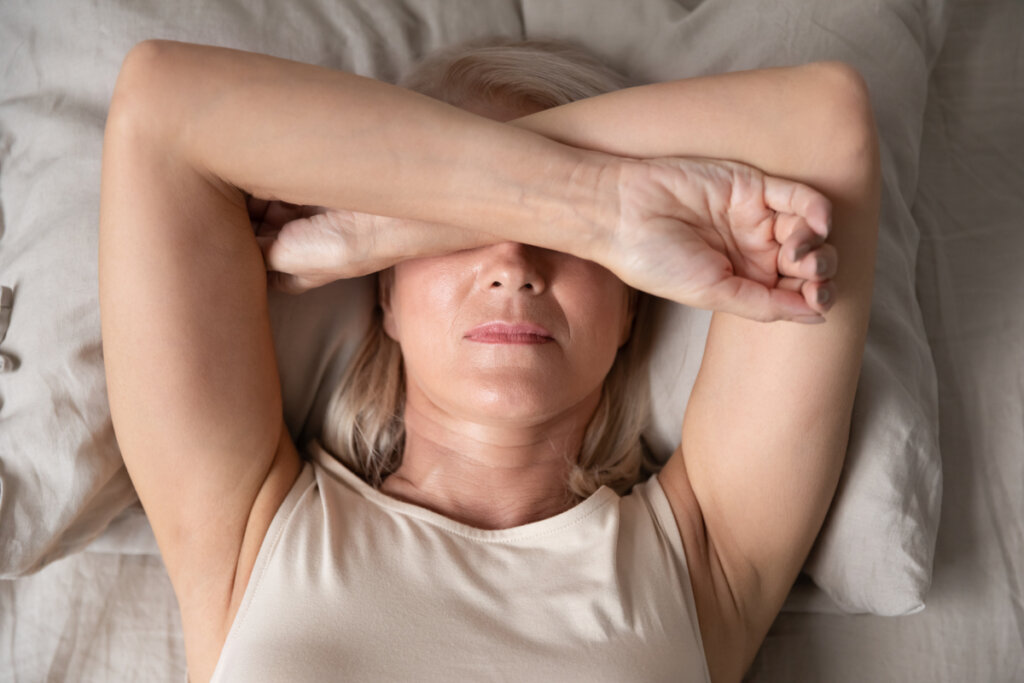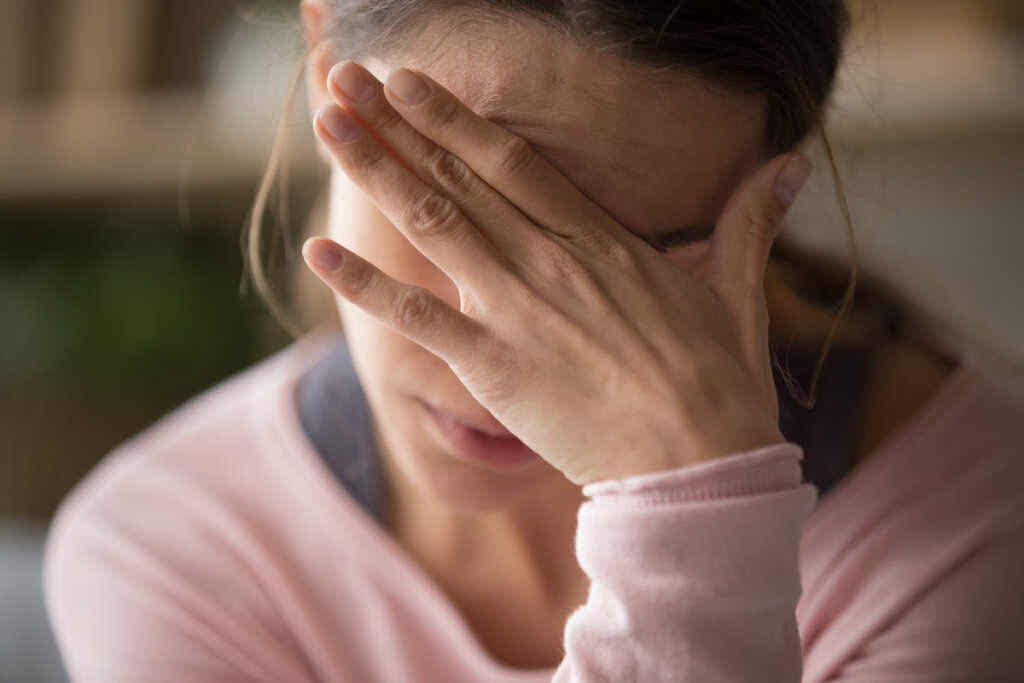The Sunday Scaries: Why You Worry So Much on a Sunday Evening


Written and verified by the psychologist Valeria Sabater
They call them the Sunday scaries or the Sunday blues, and they’ve even been responsible for heart attacks on more than one occasion. In fact, stress and anxiety levels tend to rise higher than normal on Sunday nights, which poses an obvious health risk. It seems that, as soon as you put your head on the pillow, you start to worry, sometimes to an extreme degree, about the coming week.
Although popular culture tells us about the classic boredom of Sunday afternoon, the reality is quite different. The weekend passes by in the blink of an eye, and before you know it you’re close to Monday again. Returning to the routine is sometimes terrifying and takes you back to a reality full of overwhelming uncertainties, pressures, and obligations.
A study conducted by The Sleep Judge (an organization that helps people get a good night’s sleep) found that almost 80 percent of the population experiences a spike in anxiety on Sundays. This discomfort appears only mildly in the morning but, as the day progresses, the levels of cortisol and adrenaline increase their presence in the body.
The effects aren’t good. Let’s take a closer look into a reality that, far from normalizing, you should know how to handle.
Changing your Sunday routine can help you alleviate the burden of discomfort that arises as the start of the week approaches.

When work (or lack of it) makes you sick
Anxiety, stress, anguish, discomfort. We can define the negative state that precedes the start of the week in many ways. However, in all cases, there’s the same underlying origin. It’s a response to a perceived threat. Although it’s true that the vast majority of us manage to face and deal with the Sunday scaries, for many people, it’s a paralyzing experience.
For example, we know that the younger population experiences more anxiety during the last few hours of the weekend. Indeed, both millennials and Gen Z describe an overwhelming sense of pressure. However, even though the worries are more intense on Sunday nights, we shouldn’t assume that the cause is only work-related. There could be more variables.
The origin of the Sunday scaries
The most common factor is work stress. The pressure of performance, the need to meet certain objectives, poor working conditions, and even harassment or mobbing, shape this recurrent anguish.
- Unemployment, both temporary and chronic, causes higher levels of anxiety on Sundays. This is because it’s the time of the week when we usually prepare ourselves for the return to the work routine. When this doesn’t happen, as there’s no job to go to, the psychological discomfort is more pronounced.
- Monday is the day when students return to class. This sector of the population also experiences a notable burden of pressure, self-demand, anxiety about classes, exams, etc.
- Many people deal with the difficulty of combining family life and work life. The idea of seeing how the weekend has vanished and with it the opportunity to share more time with their children or partner causes stress.
What symptoms does it present?
The Sunday scaries give rise to a wide range of symptoms, which may be different in each person. However, there are some common elements that distinguish this kind of anguish.
- Feeling of restlessness and being unable to stop thinking about going back to work, classes, or pending tasks.
- Ruminant and catastrophic thoughts.
- Tachycardia.
- Fatigue.
- Difficulty in getting to sleep.
- Bad mood.
- Not being able to concentrate on anything or enjoy leisure time.
- Loss of appetite or overeating.
- When worries are most intense, digestive problems occur on Sunday nights.
- Headaches.
People who, on Sundays, can’t stop thinking about their pending tasks and what they must do during the week are at greater risk of suffering from conditions that range from anxiety attacks to heart attacks.

What can be done?
In 1991, The New York Times published an article about the Sunday ‘blahs’. They discussed aspects such as job insecurity as well as other triggers of this phenomenon, such as alterations in the biological rhythm and even disenchantment with one’s own lifestyle.
Although it’s true that the fear of Monday is a collective phenomenon, each one of us must address those elements that orchestrate this psychological discomfort. We shouldn’t normalize the idea that Sunday evening/Monday morning is ‘bad’. We must try and make the idea of the beginning of the week as a threat, disappear. Here’s how to do it:
1. Listen to the message: is there anything you can change?
Stress and anxiety are nothing more than natural mechanisms that warn you of a risk, which may or may not be a real threat. What if you listen to the message? What if you face what’s causing you discomfort so that it stops doing so?
Indeed, perhaps you should try and resolve those aspects related to work, study, or your personal life so that your anguish toward Monday comes to an end.
2. Rewrite your Sundays: they should be days of calm and balance
If your worries are more intense on Sunday nights, it’s time to put on another ‘mental movie’. One that’s devoid of fears and anxieties.
You need to lower the volume of concern and raise that of calm and confidence. You must stop being catastrophic and become more reasonable, logical, and hopeful. After all, it’s highly likely that none of what you’re imagining will really happen.
Therefore, try and schedule your Sundays a little better:
- Socialize and hang out with friends or family.
- Go for a walk and get in touch with nature.
- Take naps and spend some time on artistic tasks. Research conducted by the University of Applied Sciences, Leiden, (Netherlands) speaks of the benefits of art to reduce anxiety and stress.
3. Schedule your Monday to be more enjoyable
The Sunday scaries will dissipate if Mondays are friendlier and more exciting. In fact, small changes that break rigid routines are often essential and can prove to be cathartic. For this reason, try and transfer to this first day of the week certain activities that motivate you and make you feel happy.
We all know that worries become more intense on Sunday nights. It’s that time of the week in which your mind becomes rather meditative and you reflect on your life, while Monday looms ever closer with its pressures and demands. Try and avoid falling into that void, into the black hole that consumes your spirit and even your feelings of hope.
There are always changes you can make to alter your perception. Start with the smallest and see what happens. Change your mentality, face your Sunday problems, and see how matters start to improve.
All cited sources were thoroughly reviewed by our team to ensure their quality, reliability, currency, and validity. The bibliography of this article was considered reliable and of academic or scientific accuracy.
- Abbing A, Baars EW, de Sonneville L, Ponstein AS, Swaab H. The effectiveness of art therapy for anxiety in adult women: A randomized controlled trial. Front Psychol. 2019;10:1203. doi:10.3389/fpsyg.2019.01203
- Hartono M. Drawing hobby as a medium to manage stress and self-development. J Visual Communic Design. 2022;7(1):43-52. doi:10.37715/vcd.v7i1.2905
- Heitmann B. Your guide to winning @work: Decoding the Sunday Scaries. LinkedIn.
- Carpenter JK, Andrews LA, Witcraft SM, Powers MB, Smits JA, Hofmann SG. Cognitive behavioral therapy for anxiety and related disorders: A meta-analysis of randomized placebo-controlled trials. Depress Anxiety. 2018;35(6):502-514. doi:10.1002/da.22728
This text is provided for informational purposes only and does not replace consultation with a professional. If in doubt, consult your specialist.








